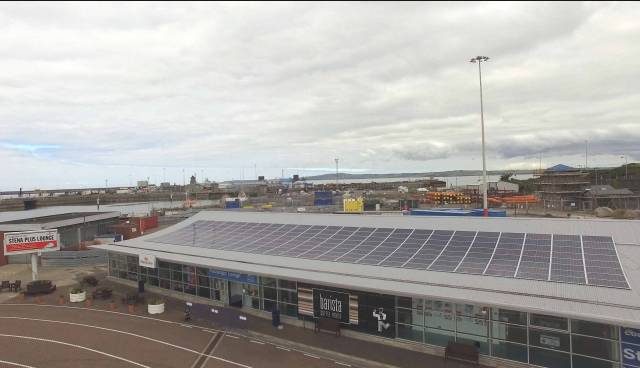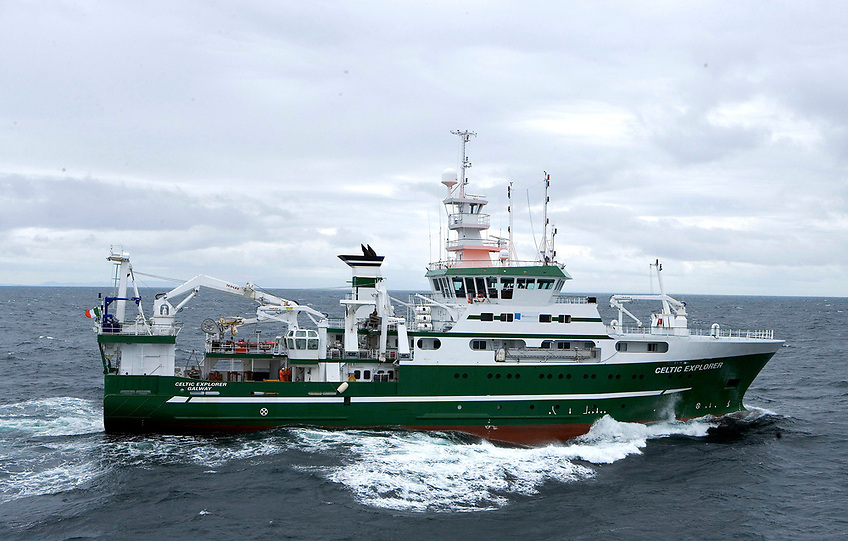#SolarPort - As part of a drive to become the world’s greenest ferry operator, Stena Line has just delivered an innovative solar project at its Port of Holyhead in Wales.
The project involved the fitting of four 50kWp Solar PV panel arrays to the roofs of terminal buildings, garage and shore shop. Stena Line teamed up with Eco Environments Ltd, a grid-connected and off-grid power specialist. The project was completed on time and on budget over a 4-week period during the summer with no interruptions to the port nor business to daily ferry operations.
The energy efficiency stats and associated carbon reduction levels around the project are impressive. It estimated that the panels will saved approximately 89 432 kg CO2 annually, provide 164 400 kWh of electricity for use onsite and will provide a yearly benefit worth £27,276 in electricity savings together with additional government feed-in tariff revenue. The pay back for the system is estimated to be less than seven years.
Wyn Parry, Stena Line Port Manager, Holyhead, said: “This is a very innovative and exciting project for us to be associated with. Initiatives like this one point the way forward and, as a company, we need to focus on it if we are to achieve our vision of becoming the greenest ferry operator in the world. While the savings themselves are relatively modest from a financial perspective, if we look at this as a small project within a much more comprehensive approach to future sustainability then I think it’s an important step forward and one that I’m sure can be easily replicated across other parts of the Stena Line and wider Stena Group businesses.”































































